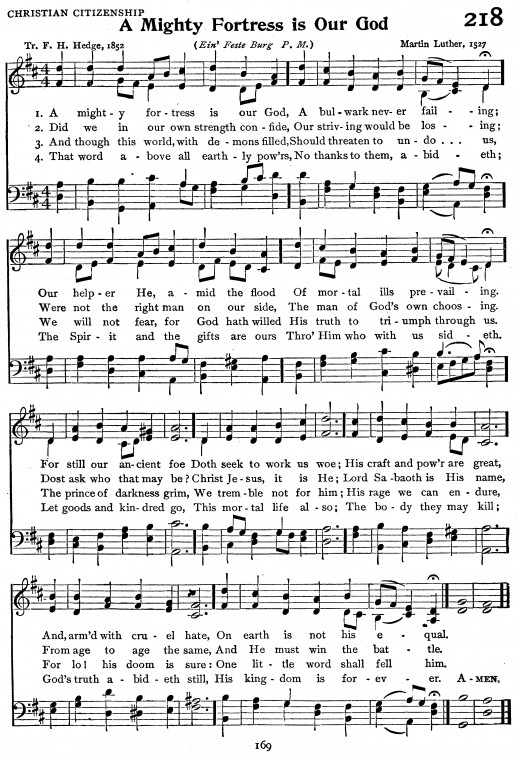Commander In Chief - Jehovah-tsabaot

Isaiah 6:1-8
In the year that King Uzziah died, I saw the Lord, high and exalted, seated on a throne; and the train of his robe filled the temple. Above him were seraphim, each with six wings: With two wings they covered their faces, with two they covered their feet, and with two they were flying. And they were calling to one another: “Holy, holy, holy is the Lord Almighty; the whole earth is full of his glory.” At the sound of their voices the doorposts and thresholds shook and the temple was filled with smoke. “Woe to me!” I cried. “I am ruined! For I am a man of unclean lips, and I live among a people of unclean lips, and my eyes have seen the King, the Lord Almighty.” Then one of the seraphim flew to me with a live coal in his hand, which he had taken with tongs from the altar. With it he touched my mouth and said, “See, this has touched your lips; your guilt is taken away and your sin atoned for.” Then I heard the voice of the Lord saying, “Whom shall I send? And who will go for us?” And I said, “Here am I. Send me!”
Ephesians 6:12-18
For our struggle is not against flesh and blood, but against the rulers, against the authorities, against the powers of this dark world and against the spiritual forces of evil in the heavenly realms. Therefore put on the full armor of God,so that when the day of evil comes, you may be able to stand your ground, and after you have done everything, to stand. Stand firm then, with the belt of truth buckled around your waist, with the breastplate of righteousness in place, and with your feet fitted with the readiness that comes from the gospel of peace. In addition to all this, take up the shield of faith, with which you can extinguish all the flaming arrows of the evil one. Take the helmet of salvation and the sword of the Spirit, which is the word of God. And pray in the Spirit on all occasions with all kinds of prayers and requests. With this in mind, be alert and always keep on praying for all the Lord’s people.
Introduction
When I first went into the U.S. Air Force for basic training at Lackland Air Force Base, I was unprepared for the jarring experience of being yelled and screamed at by the drill sergeants. My first impression of these men was that they seemed immature or ignorant (didn’t they have any better communication skills than to yell at us with profanity laced shouting for no apparent reason?). I quickly learned that this was not a healthy attitude toward my training instructors! I soon learned to rapidly respond to the shouted commands of those who outranked me. And though I learned to follow commands in short order, it took awhile to be able to actually respect someone above me. It’s not that I had a problem with authority, it’s just that I did not appreciate people being arrogant or cruel about it. Fortunately, I did have some supervisors and commanders whom I admired. They were the people who appreciated my abilities, inspired me to do my job well and helped me think of myself as an important part of a larger whole.
As followers of Christ, we are a part of a force larger than ourselves. Though our relationship with God as an individual and personal experience, we also have a faith that makes us a part of the church that is under the command and leadership of God.
LORD Sabaoth His Name
Back a few years ago, I was reading the passages in Isaiah in the New Century Version. When I read in Isaiah 47, I discovered something I did not realize before: My attention was caught by verse 4, as it reads in the NCV: “Our Savior is named the LORD All-Powerful; he is the Holy One of Israel.” I was intrigued by the way this sentence specifically was referring to a name for God. As I read farther, I noticed that this name showed up several times more in the next few chapters. I had been aware of the various compound names of God, but I had not ever known about this one before.
It was a case of not noticing something that is out in plain sight, really, because the name is all over the place – appearing some 270 times in the OT. The way that we normally see this name for God is LORD of Hosts. In the NIV, the name appears as LORD Almighty; in the NLT we see it as LORD of Heaven’s Armies. You get the idea!
I think because I was used to seeing the word Hosts used, I had never thought of it as one of the compound names of God. With the last few Hubs I have published, we have been looking at some of these compound names of God that appear in the OT stories. You might recall that in these stories, the person in the story (Abraham, Moses & Gideon) named an altar after God: God’s proper name is used – Jehovah – and an attribute is attached to it to emphasize something about God. In one of the stories we looked at, we heard God describing God’s own self with one of these compound names. In another story, God’s compound name is revealed through the voice of the prophet.
So, to review, we have looked at Jehovah-elohim (The LORD God), Jehovah-jireh (The LORD our Provider), Jehovah-nissi (The LORD my Banner), Jehovah-rapha (The LORD your Healer), Jehovah-m’kadishkem (The LORD Who Sanctifies). Jehovah-qanna (The LORD is Jealous), Jehovah-elohe abotkem (The LORD God of your Ancestors), and Jehovah-shalom (The LORD is Peace). In this Hub, the name we will look at is The LORD of Hosts. In Hebrew this name is: Jehovah-tsabaot. Usually, these compound names of God appear only once or twice – just as a part of that particular story. But Jehovah-tsabaot or LORD of Hosts appears many times throughout the OT.
Hosts can be defined as a massed army or soldiers ready for battle and ready to serve at the commander’s direction. Hosts can refer to the angels, that is, the “Heavenly Hosts,” and it can also refer the hosts on earth, that is, those who faithfully serve God in this life. So our name in this Hub means that God is our Commander in Chief.
In fact when I was studying the meaning of Jehovah-tsabaot, I had a light turn on in my head and I was reminded of Martin Luther’s hymn, “A Might Fortress.” Do you remember the second verse?
“Did we in our own strength confide,
Our striving would be losing;
Were not the right man on our side,
The Man of God’s own choosing.
Dost ask who that may be?
Christ Jesus – it is He;
Lord Sabaoth His name;
From age to age the same;
And He must win the battle.
Though a better rendering of the Hebrew into English would be “tsabaot,” often “sabaoth” is used, and it refers to the same word and the same name.

Which Story To Use?
The fact that this name appears so often in the OT presents a minor problem for this series, and that is deciding which story to use to best understand it. I decided to use the Isaiah 6 reading, but before we go there, let’s briefly look at a few other times that this name appears.
1) I Samuel 1:3 &11 – The name first appears in the first chapter of I Samuel. The book opens with Elkanah and his wife Hannah. In v. 3, it is said that Elkanah’s family regularly went to the tabernacle to worship the LORD of Hosts. In the story, we learn that Hannah was distressed because she didn’t have a child, and in v. 11, she makes a vow to the LORD of Hosts that if she could have a son, she would dedicate him to the LORD’s service. Shortly afterward, she conceives and later the prophet Samuel is born.
2) I Samuel 17:45 – Another well known story where LORD of Hosts is used is in the story of David and Goliath. You know the story, the Philistine giant named Goliath challenged the members of the Israelite army and they were all afraid to face him. David came along and took up the challenge, even though he was not trained as a soldier. In v. 45, David answers Goliath’s taunts by saying, “You come against me with sword and spear and javelin, but I come against you in the name of the LORD of Hosts, the God of the armies of Israel, whom you have defied.”
3) Psalms – The name LORD of Hosts appears in the Psalms in several places. One example is Psalm 24:10 – “Who is he, this King of glory? The LORD of Hosts – he is the King of glory.” Another example is Psalm 46:11 – “The LORD of Hosts is with us; the God of Jacob is our fortress.”
4) Isaiah & Jeremiah – The name appears a lot in the books of the prophets, most often in Isaiah and Jeremiah.
5) Zechariah 4:6 is a verse that uses this name, and is well worth mentioning; the last part of this verse reads: “‘Not by might nor by power, but by my Spirit,’ says the LORD of Hosts.”
Isaiah 6, And What We Can Learn
Since the name is used so often, we could get lost looking at the many times it is used, so as not to get carried away, let’s look briefly at Isaiah 6:
Isaiah 6 is the prophet Isaiah’s commissioning. He has a vision of being in the very throne room of God. He hears the angels worshiping God with the call: “Holy, holy, holy is the LORD of Hosts; the whole earth is full of his glory.” Isaiah is overwhelmed with dread becoming aware of his unworthiness before holy God, but an angel lets Isaiah know that he could rest assured that his sins are atoned for. Then Isaiah hears the voice of God asking who will go to represent the LORD and the LORD’s cause. In faith, Isaiah responds, “Here am I. Send me!” Then Isaiah is given the message to bring to the people.
There is an important point we need to take from this story in light of the name of God Jehovah-tsabaot – The LORD of Hosts.
1) When you are under authority of someone, it is that person who give the orders and not you. The LORD of Hosts is our commander in chief. It isn’t by our will, it isn’t by our standard that we live our lives, it’s by God’s standard, according to God’s will. It wasn’t Isaiah who called the shots, it was the LORD of Hosts who commissioned, equipped, and sent Isaiah on his mission to be the prophet to God’s people.
The same is true of us today: Those of us who have been in the military know that
when you are given an order from a superior officer, you’d better obey it – and do it expeditiously. And those of you who work under the supervision of a boss also understand that when the boss asks us to do something, we’d better do it and do it well or we may soon be looking for work somewhere else.
What’s great about following God’s commands and doing God’s tasks is that we know that God’s commands are perfect (where our human supervisors don’t always give us perfect direction). What’s even greater than that is that when God directs us to do something, God also equips us to do it. In the human world, we may or may not get the training or material we need to do something on the job.
2) Our NT reading in Ephesians 6 shows how God provides us with tools and weapons to wield in the fight that we are in. The war we are in is a spiritual war, and the battles we fight are against the schemes of the Evil One. And for this fight, we are given truth, righteousness, the message of the gospel, faith, the fact of our salvation, and the Bible as tools and weapons that enable us to have victory in this spiritual war.
An import feature of this passage is that of prayer. Verse 18 exhorts us to: “Pray in the Spirit on all occasions with all kinds of prayers and requests. With this in mind, be alert and always keep on praying for all the Lord’s people.”
And this emphasizes another important point to remember when we think about Jehovah-tsabaot – the LORD of Hosts, and that is the fact that we are not alone in the battle.
3) Something consistent that the various people of faith in the OT who called on the name of the LORD, is that they knew God could be called upon in their time of need. As we have seen with Hannah, David, Isaiah, Zechariah, and so many others is that God was available to them when they called out in their need. God is available for us as well in our time of need.
It’s like when a soldier is in the thick of battle and feels the pressure of the enemy, what does he do? He calls to his commander for reinforcements and fire support. As soldiers in the LORD’s army, let’s in faith call on Jehovah-tsabaot – the LORD of Hosts for our help.
Conclusion
The reality of God as the LORD of Hosts is that as people of God, we are people under God’s authority. But as God sends us, God also equips us. And lastly, as people in the thick of the spiritual fight, we are not alone – the Commander of the Hosts in heaven and the Hosts on earth is eager and ready to respond to our call. So, when The LORD of Hosts calls to us, let us respond like Isaiah did: “Here am I. Send me.”









